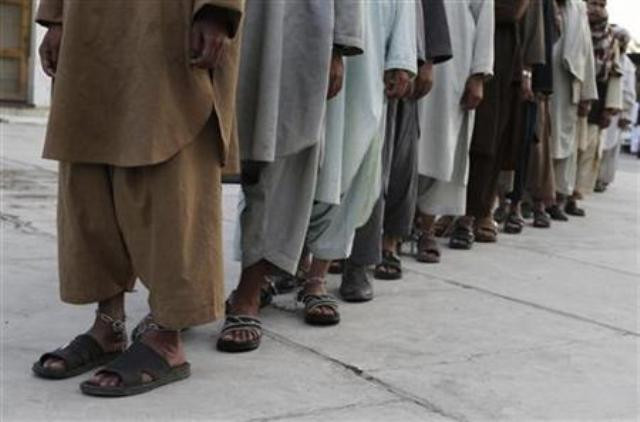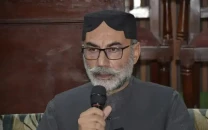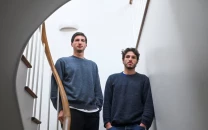AGP for release of UTPs accused of minor crimes
Also proposes freeing convicts, languishing due to non-payment of fine; vulnerable prisoners

PHOTO: REUTERS/ FILE
AGP Khalid Javed Khan has submitted a written proposal to the Supreme Court of Pakistan, whose five-judge larger bench is hearing a petition filed against March 20 order of the Islamabad High Court (IHC) for release of the UTPs.
The AGP said the apex court has been called upon to exercise its power under Articles 184(3) and 187 of the Constitution in dealing with the matters relating to the prisoners in jails all over Pakistan in the wake of the pandemic.
The proposal said the accused persons charged for offences under non-prohibitory clauses or under vagrancy law or offences carrying less than three years sentence may be considered for bail.
He said the benefit should not extend in cases involving abuse/violent acts against children and women but persons suffering from ailments or physical or mental disability may be considered.
The AGP also proposed that the benefit should be extended to the UTPs who are 55-year-old or older and then to other male UTPs provided there is no history of past convictions. The benefit should also be extended to all women and juvenile UTPs.
The AGP proposed that bail in these cases may be extended on personal bonds. “Some categories of convicted persons may be considered for release by the provincial governments under Section 401 Code of Criminal Procedure (CrPC)."Convicts who have otherwise completed their sentences but remain in jail on account of non-payment of fine/monetary penalty and women/juvenile convicts who
have completed 75% of their sentence and have no history of past convictions [can be released].“[Similarly] convicts – whose remaining term in jail is six months or less provided that the offence was not that of violence against women or children – and women/juvenile who were sentenced to a term of one year or less [might also be bailed out].”Some legal experts said if the larger bench accepted the AGP’s proposal then a couple of thousands prisoners might be released. Karachi based lawyer Salahuddin Ahmed welcomed the proposal and described it as “positive” and “a workable way forward”.
"However, I think the benefit should be denied to anyone who has committed violent offences and not just violence against women and children. On the other hand, I feel that all people who have completed 75% of their sentence may be released. But overall I think the AGP’s proposal tries to find the right balance between two competing social interests," he added.
Talking about the larger bench last hearing, Salahudin said if the SC felt that some categories of prisoners released by high courts should not have been released, they could have suspended the releases to that extent only.
“However, the wholesale suspension of the IHC’s orders was excessive in the circumstances.”
He urged the SC that while reviewing high courts’ order it should avoid making comments that undermine the public legitimacy of these courts. "We need to preserve the public credibility of the entire judiciary and not just the apex court."
SCBA president submits report
The Supreme Court Bar Association (SCBA) President Qalb-i-Hassan submitted a report titled “What makes Pakistani prisoners more vulnerable through the coronavirus” to the Supreme Court.
It said there are 114 jails in Pakistan which have the capacity of accommodating 57,742 prisoners but in fact, there are 77,275 prisoners in these Jails. These prisoners who are in jail have been divided into two categories – convicts and the UTPs.
There are 25,246 convicted prisoners, while 48,008 are UTPs. Amongst them, 1,184 are women, who also have their children in jails. There are 1,500 elderly prisoners above the age of 60 years.
The SCBA contended that at least the vulnerable prisoners – women prisoners and elderly prisoners, above the age of 60 years – may be granted benefit of bail, so that they can be saved from being infected from the coronavirus



















COMMENTS
Comments are moderated and generally will be posted if they are on-topic and not abusive.
For more information, please see our Comments FAQ